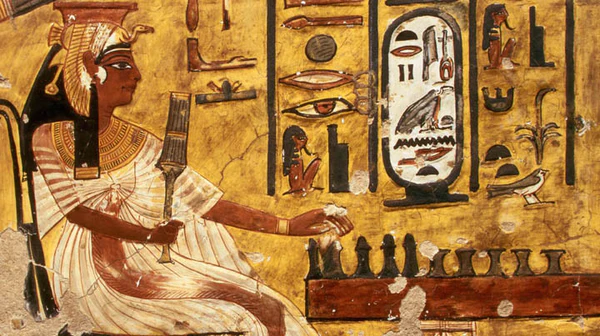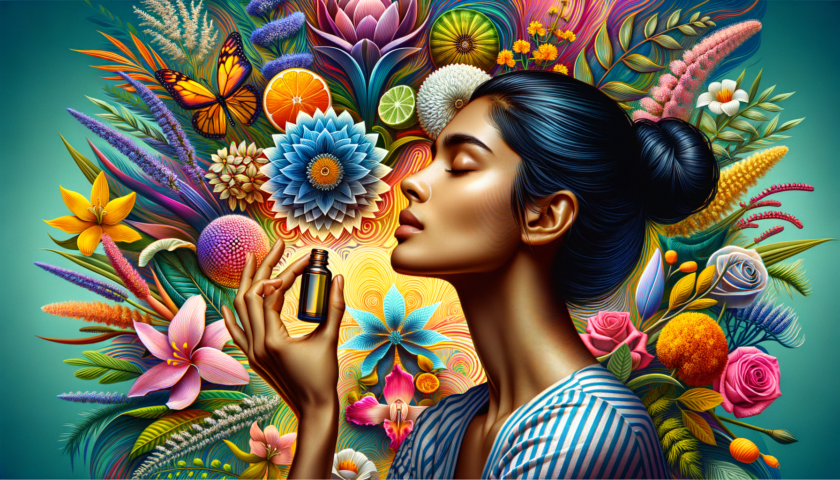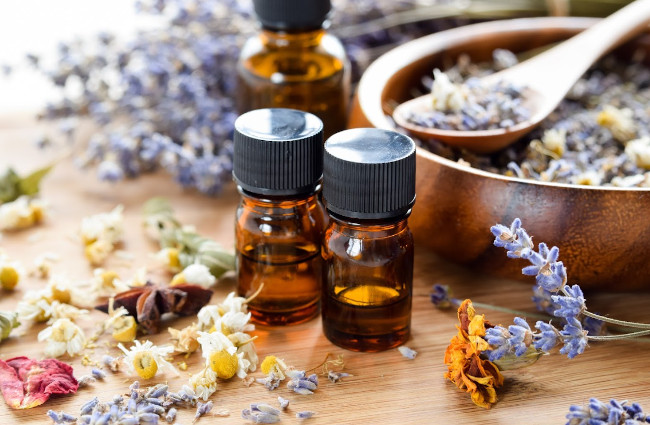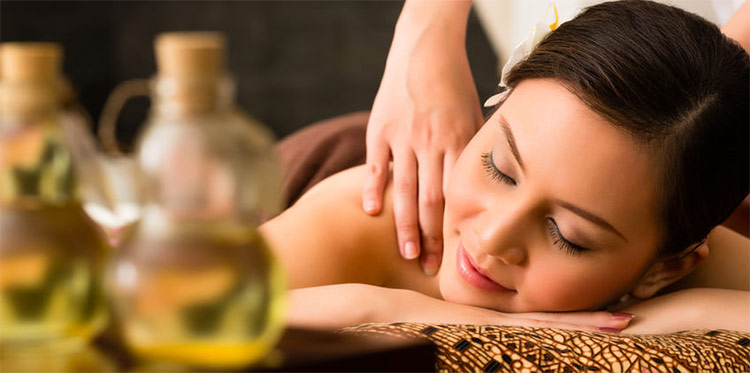In a world where stress has become a daily companion, finding ways to unwind and rejuvenate is more crucial than ever. Aromatherapy oil massage offers a unique blend of relaxation and healing through the use of essential oils and therapeutic touch. This ancient practice, which has roots in various cultures around the globe, is known for its ability to harmonize the body, mind, and spirit.
The History and Evolution of Aromatherapy

Aromatherapy, the use of essential oils for therapeutic purposes, dates back thousands of years. Ancient civilizations such as the Egyptians, Greeks, and Chinese utilized aromatic plants in religious ceremonies, medicinal practices, and daily routines. The term “aromatherapy” was coined by French chemist René-Maurice Gattefossé in the early 20th century, following his discovery of the healing properties of lavender oil.
Over time, aromatherapy evolved, incorporating more sophisticated techniques and a broader range of essential oils. Today, it is an integral part of holistic health practices, often combined with massage to enhance its therapeutic effects.
The Science Behind Aromatherapy

Aromatherapy operates on the principle that essential oils can influence physical, emotional, and psychological well-being. Essential oils are highly concentrated plant extracts that capture the essence of the plant’s fragrance and healing properties. These oils can be absorbed through the skin during a massage or inhaled, stimulating the olfactory system and subsequently affecting the brain and nervous system.
Scientific studies have shown that certain essential oils can have profound effects on mood, stress levels, and physical ailments. For instance, lavender is known for its calming properties, while peppermint can invigorate and uplift. The interaction between the oils and the body’s receptors can trigger various biochemical responses, promoting relaxation, pain relief, and overall well-being.
The Benefits of Aromatherapy Oil Massage

Physical Benefits
- Pain Relief: Essential oils like eucalyptus and chamomile have anti-inflammatory properties that can help alleviate muscle and joint pain. When combined with the physical manipulation of muscles during a massage, these oils can provide significant relief from chronic pain conditions such as arthritis and fibromyalgia.
- Improved Circulation: Massage stimulates blood flow, and when paired with certain essential oils like rosemary or ginger, it can enhance circulation further. This improved blood flow can help detoxify the body, improve skin tone, and boost overall vitality.
- Enhanced Immunity: Essential oils like tea tree, eucalyptus, and lemon are known for their immune-boosting properties. Regular aromatherapy massage can help strengthen the immune system, making the body more resilient to infections and diseases.
Mental and Emotional Benefits
- Stress Reduction: One of the most notable benefits of aromatherapy oil massage is its ability to reduce stress.Oils such as lavender, bergamot, and ylang-ylang have renowned calming effects. Inhaling or absorbing these oils through the skin during a massage lowers cortisol levels, promoting a sense of calm and relaxation.
- Mood Enhancement: Aromatherapy can significantly impact mood and emotional well-being.Citrus oils like orange and grapefruit have uplifting properties, helping alleviate symptoms of depression and anxiety. A massage with these oils can leave you feeling refreshed and revitalized.
- Improved Sleep: Essential oils like lavender and chamomile often alleviate insomnia and other sleep disorders. A soothing aromatherapy massage before bedtime can promote relaxation and improve sleep quality, helping you wake up feeling more rested and rejuvenated.
The Process of Aromatherapy Oil Massage

Preparation
- Choosing the Right Oils: The first step in an aromatherapy oil massage is selecting the appropriate essential oils based on the client’s needs and preferences. The practitioner will typically mix a few drops of essential oil with a carrier oil, such as almond or jojoba oil, to ensure safe application to the skin.
- Setting the Environment: Creating a tranquil environment is crucial for a successful aromatherapy session. This involves dimming the lights, playing soft music, and ensuring the room is at a comfortable temperature. The overall ambiance should promote relaxation and peace.
The Massage Technique
- Application of Oils: The massage begins with the application of the essential oil blend to the skin. The practitioner uses gentle, flowing strokes to spread the oil evenly, allowing the client to inhale the aroma and begin the relaxation process.
- Massage Movements: Practitioners can employ different massage techniques during an aromatherapy session, including Swedish massage, deep tissue massage, and reflexology. The choice of technique depends on the client’s needs and the desired outcome of the massage. The practitioner will use various movements such as kneading, tapping, and circular motions to manipulate the muscles and tissues.
- Focus Areas: Special attention is often given to areas of tension or pain. For example, if a client is experiencing back pain, the practitioner will spend more time working on the back muscles, using specific essential oils known for their pain-relieving properties.
Post-Massage Care
- Hydration: After the massage, it is important for clients to drink plenty of water. This helps to flush out toxins released during the massage and keeps the body hydrated.
- Rest: Clients are advised to rest and avoid strenuous activities for the remainder of the day to allow the body to fully benefit from the massage.
Popular Essential Oils and Their Uses

- Lavender: Known for its calming and relaxing properties, lavender often reduces stress and promotes sleep. It also helps with headaches and minor burns.
- Peppermint: This invigorating oil is great for boosting energy levels and improving concentration. It is also effective in relieving muscle pain and digestive issues.
- Eucalyptus: Eucalyptus oil provides notable respiratory benefits. It can help clear congestion and improve breathing, making it a popular choice for colds and allergies.
- Tea Tree: With its powerful antiseptic properties, tea tree oil is excellent for treating skin conditions like acne and fungal infections. It is also used to boost the immune system.
- Rosemary: Rosemary oil can improve circulation and reduce muscle and joint pain. It is also known to enhance memory and cognitive function.
- Chamomile: Many use chamomile oil for its soothing and anti-inflammatory properties. It is effective in treating skin irritations, anxiety, and insomnia.
Safety Considerations in Aromatherapy
While aromatherapy is generally safe, it is important to use essential oils correctly to avoid adverse reactions. Here are some key safety tips:
- Dilution: Always dilute essential oils with a carrier oil before applying to the skin. . Undiluted oils can cause irritation or allergic reactions.
- Patch Test: Before using a new essential oil, perform a patch test to check for any allergic reactions. Apply a small amount of diluted oil .to a patch of skin and wait 24 hours to see if any irritation occurs.
- Consultation: Individuals with medical conditions, pregnant women. And those taking medication should consult with a healthcare professional before using essential oils.
- Quality: Use high-quality, pure essential oils from reputable sources to ensure their efficacy and safety.
Conclusion
Aromatherapy oil massage is a powerful holistic therapy that combines .The benefits of massage with the healing properties of essential oils. Whether you’re seeking relief from physical pain, emotional stress. Or simply looking to enhance your overall well-being, this practice offers a natural and effective solution. By understanding the history, science, and techniques behind aromatherapy. you can fully appreciate its potential to transform your health and bring balance to your life.
As you explore the world of aromatherapy, remember to approach it with an open mind and a sense of curiosity. Each essential oil holds a unique essence and energy that can contribute to your healing journey. With the right knowledge and practice, aromatherapy oil massage can become a valuable tool in your self-care routine. Helping you to navigate the challenges of modern life with grace and resilience.



